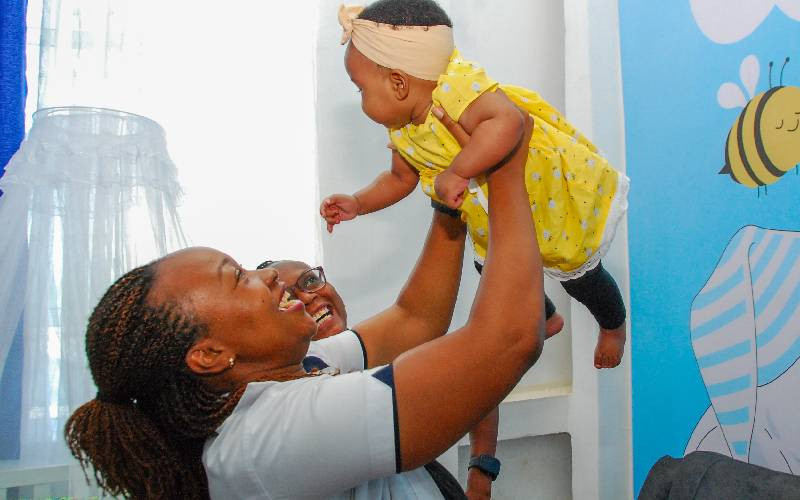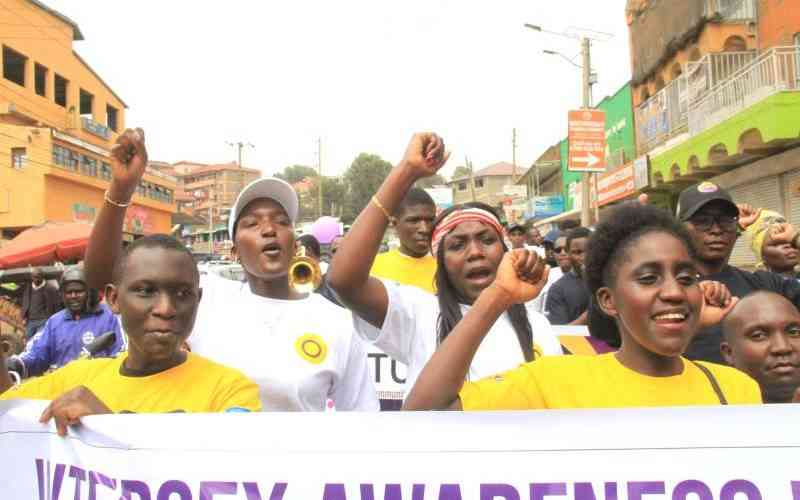
Rapid urban population growth in Africa is primarily due to more births than deaths in cities or natural increase and not rural to urban migration, the 9th Africities Summit in Kisumu heard. The forum was told that around 20 million women in African cities want to use family planning, but cannot access reproductive health services. Such mounting urbanisation, the participants noted, presents challenges for planning and providing physical infrastructure and social services.
During a session called ‘Family planning is critical to urban development: What you need to know and what you can do,’ representatives from 54 African countries heard that city populations tend to be younger than in rural areas, and that millions of urban women want to space or limit their births but are unable to do so.
This is classified as an ‘unmet need’, with women willing to stop or delay childbearing but are not using any method of contraception. One in 10 women in Zimbabwe, and up to four in 10 in Angola were said to have unmet need
Research showed that about one-third of women in low-income settlements in Kampala, Uganda have unmet need.
In Kenya, three in 10 women face unmet needs in slum areas, more than double the rate at which women living in urban areas. The barriers to access range from cultural and societal pressure on women, to poverty, and discrimination, especially for those considered young or unmarried when trying to get modern contraception.
Prof Alex Ezeh, founding Executive Director of the African Population and Health Research Centre, and now Professor of Global Health at Drexel University, USA, emphasized that “hard infrastructure like roads, housing, water, and sanitation are important and needed in Africa’s cities. “However, with the growth rate of our cities, no amount of investments will be enough, especially in secondary cities, like Kisumu, unless we understand the role fertility plays in urban growth.”
Participants were presented with success stories from ‘The Challenge Initiative,’ which works with mayors and other elected leaders from 70 cities across nine countries in Africa to scale up high-impact family planning interventions for the urban poor.
One of the key players in this was cited as Esther Passaris, the Nairobi Woman Representative, who presided over the session. “Political goodwill is critical to achieving zero unmet needs for contraceptives. By increasing capacity for leaders to respond to the needs of women, we can safeguard women’s human rights and guarantee their dignity, and in so doing protect the children from the ripple negative effects of unwanted and unplanned pregnancies; a vicious cycle or circle of wrongs,” she said.
The average direct cost of supplying a modern, effective contraceptive to a couple in Africa is about $8 (about Sh800) a year. The experts’ research findings have shown that family planning is a low-cost way to promote urban economic development and city resilience. “Family planning is one of the most important investments you can make to improve the lives of the citizens of your city. In the longer term, it will make every shilling you spend on infrastructure, health, education, and creating decent jobs go much further because the number of people requiring such services is not growing faster than your government’s ability to respond to them,” Prof Ezeh said.
Meeting family planning needs is associated with: improved maternal, infant, and child health, increased women’s empowerment, and reduced household poverty.
Tanzania’s Tanga Mayor Mr Shiloo Omari said African leaders should champion gender equity by highlighting importance of safe, quality and affordable family planning services.
“The leaders must show political commitment by creating a favourable environment for every person working in the family planning sector,” said Mr Omari.
Kira Mayor in Uganda, Mr Julius Mutebi, urged donors to assist with data analysis and building capacity to understand urban demographic change.
The panellists said as signatories of Sustainable Development Goals 11 and cognizant of the 90 per cent urban growth forecast in Asia and Africa in the next 30 years, governments should prioritise the implementation of the goal to achieve growth for all.
Governments were asked to define the policy environment and frameworks for family planning.
Dr Jamaica Corker of Bill and Melinda Gates Foundation urged religious leaders and community gatekeepers to mobilise communities for health-seeking behaviour by giving statements in support of family planning services and information.
He emphasised the benefits of child spacing, including reduction of maternal and child mortality as an improved quality of life for families and the nation.
 The Standard Group Plc is a multi-media organization with investments in media
platforms spanning newspaper print
operations, television, radio broadcasting, digital and online services. The
Standard Group is recognized as a
leading multi-media house in Kenya with a key influence in matters of national
and international interest.
The Standard Group Plc is a multi-media organization with investments in media
platforms spanning newspaper print
operations, television, radio broadcasting, digital and online services. The
Standard Group is recognized as a
leading multi-media house in Kenya with a key influence in matters of national
and international interest.











